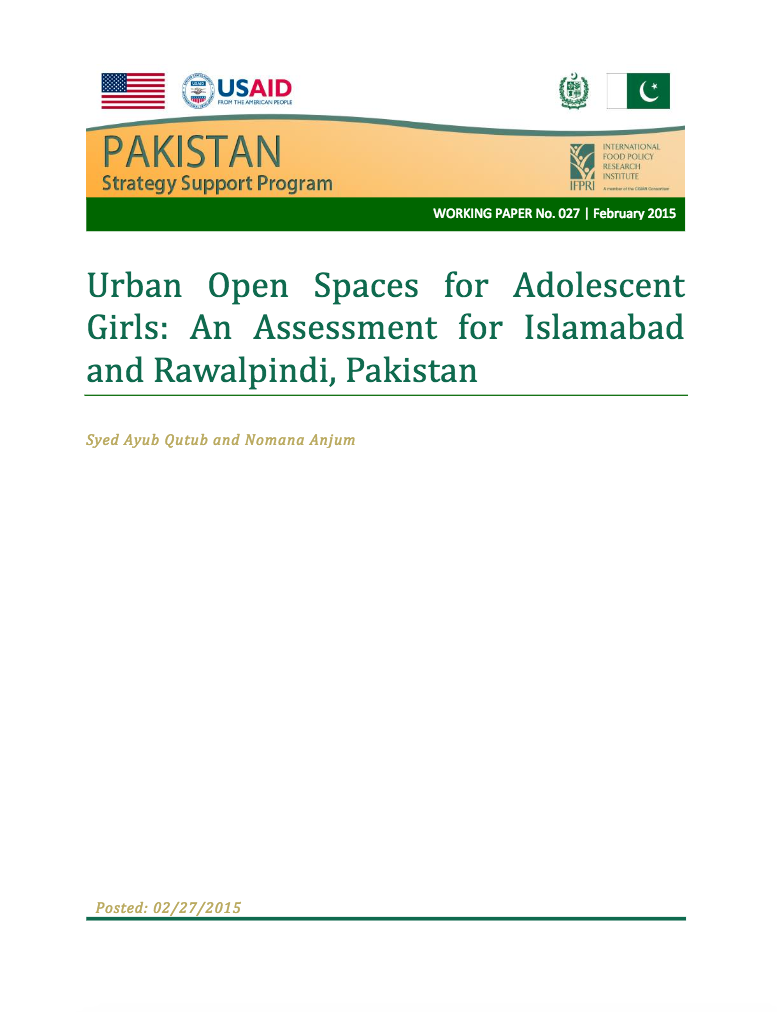Focal point
Location
About IFPRI
The International Food Policy Research Institute (IFPRI) provides research-based policy solutions to sustainably reduce poverty and end hunger and malnutrition in developing countries. Established in 1975, IFPRI currently has more than 500 employees working in over 50 countries. It is a research center of theCGIAR Consortium, a worldwide partnership engaged in agricultural research for development.
Vision and Mission
IFPRI’s vision is a world free of hunger and malnutrition. Its mission is to provide research-based policy solutions that sustainably reduce poverty and end hunger and malnutrition.
What We Do
Research at IFPRI focuses on six strategic areas:
- Ensuring Sustainable Food Production: IFPRI’s research analyzes options for policies, institutions, innovations, and technologies that can advance sustainable food production in a context of resource scarcity, threats to biodiversity, and climate change. READ MORE
- Promoting Healthy Food Systems: IFPRI examines how to improve diet quality and nutrition for the poor, focusing particularly on women and children, and works to create synergies among the three vital components of the food system: agriculture, health, and nutrition. READ MORE
- Improving Markets and Trade: IFPRI’s research focuses on strengthening markets and correcting market failures to enhance the benefits from market participation for small-scale farmers. READ MORE
- Transforming Agriculture: The aim of IFPRI’s research in this area is to improve development strategies to ensure broad-based rural growth and to accelerate the transformation from low-income, rural, agriculture-based economies to high-income, more urbanized, and industrial service-based ones. READ MORE
- Building Resilience: IFPRI’s research explores the causes and impacts of environmental, political, and economic shocks that can affect food security, nutrition, health, and well-being and evaluates interventions designed to enhance resilience at various levels. READ MORE
- Strengthening Institutions and Governance: IFPRI’s research on institutions centers on collective action in management of natural resources and farmer organizations. Its governance-focused research examines the political economy of agricultural policymaking, the degree of state capacity and political will required for achieving economic transformation, and the impacts of different governance arrangements.
Research on gender cuts across all six areas, because understanding the relationships between women and men can illuminate the pathway to sustainable and inclusive economic development.
IFPRI also leads two CGIAR Research Programs (CRPs): Policies, Institutions, and Markets (PIM) andAgriculture for Nutrition and Health (A4NH).
Beyond research, IFPRI’s work includes partnerships, communications, and capacity strengthening. The Institute collaborates with development implementers, public institutions, the private sector, farmers’ organizations, and other partners around the world.
Resources
Displaying 211 - 215 of 1521Urban open spaces for adolescent girls: An assessment for Islamabad and Rawalpindi, Pakistan
Urban open spaces are valued for their health, social, economic, and environmental benefits. Outdoor physical activity is important for the wellbeing of youth, while playfulness is crucial for creativity and innovation. It is observed that in Pakistan the access of adolescent girls to public open spaces and school playgrounds is restricted, but there has been no prior scientific study. This research has studied the impediments in four planned and un-planned localities of Islamabad and Rawalpindi. The restrictions on girls are pervasive and become more severe upon their attaining puberty.
Synopsis: Tenure (in)security and agricultural investment of smallholder farmers in Mozambique
Although it is widely recognized that land tenure security is an integral part of agricultural intensification, there is no single clearly defined and universally applicable property rights regime to achieve this end. Countries that strive for economic development and food security through agricultural intensification need to utilize land governance strategies and policies that fit their context.
Agricultural intensification in Africa: A regional analysis
This study assesses the patterns of agricultural intensification in 40 African countries looking at the role fertilizer plays in the process. We propose a set of indicators that uses information on available agricultural land and land suitability to measure intensity of land use in agricultural production.
Seasonality and household diets in Ethiopia
The paper revisits seasonality by assessing how the quantity and quality of diets vary across agricultural seasons in rural and urban Ethiopia. Using unique nationally representative household level data for each month over one calendar year, we document seasonal fluctuations in household diets in terms of both the quantity of calories consumed and the number of different food groups consumed.
Optimal tariffs with smuggling: A spatial analysis of Nigerian rice policy options
Utilizing a spatial multi-market model for rice in Nigeria that explicitly takes into account the potential for smuggling, in this paper we analyze the welfare implications of alternative rice tariff rates given the government’s goals of spurring domestic production and reducing imports.




